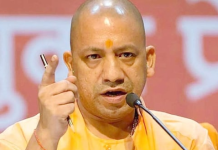
Was Shaa’ir + Func a strategic move towards indie music?
I was a struggling artist in New York and came to India in 2005 with all my savings, which were sufficient to sustain my stay in Mumbai for three months. I met Randolph Correia at a party and Shaa’ir + Func happened. We have recently released Re:Cover. We are called electro-rock, but we are experimental, heavy bass and a dance-music band.
Your uncle, Prakash Sharma, is a well-known dogri musician. Have you explored folk music as well?
My mother’s side of the family is deeply into arts but I could never explore these roots since my parents split when I was 12. I was raised by a single father in the States and was deeply connected to music. So all my musical endeavours have been individual pursuits with no support from either side of my family. I would love to learn Hindustani classical music and also experiment with dogri folk music.
You’ve described yourself as a feminist on various occasions. Where does this stem from?
I was raised to be vocal. Maybe that is the American in me. Popularity and recognition make me feel obligated to bring certain issues to peoples’ attention for the greater good of the society. In India, especially, there is a long way to go if we talk in terms of women’s rights or empowerment. When you are being pushed down, you have to push against. Being opinionated or having a distinct individuality is not a very accepted norm in the East. I’m a bit of a punk I guess!
Have you found your feet in the film industry?
I’m not yet familiar with the protocols of this industry. So I often get into trouble for divulging too much information.
Why hasn’t Fireflies seen an Indian release yet?
Intelligent non-commercial cinema does not have many takers here, although avenues are opening up. There should be a solid date of release by next month hopefully.
Having played the third wheel in Severing Ties, how do you deal with scruples in life?
I don’t put pressure on myself to be a certain way. What I want today, I might not want tomorrow. People face the dilemma of morality because they want their present, past and future to be the same. This leads to stagnation. One must accept that change is constant.













